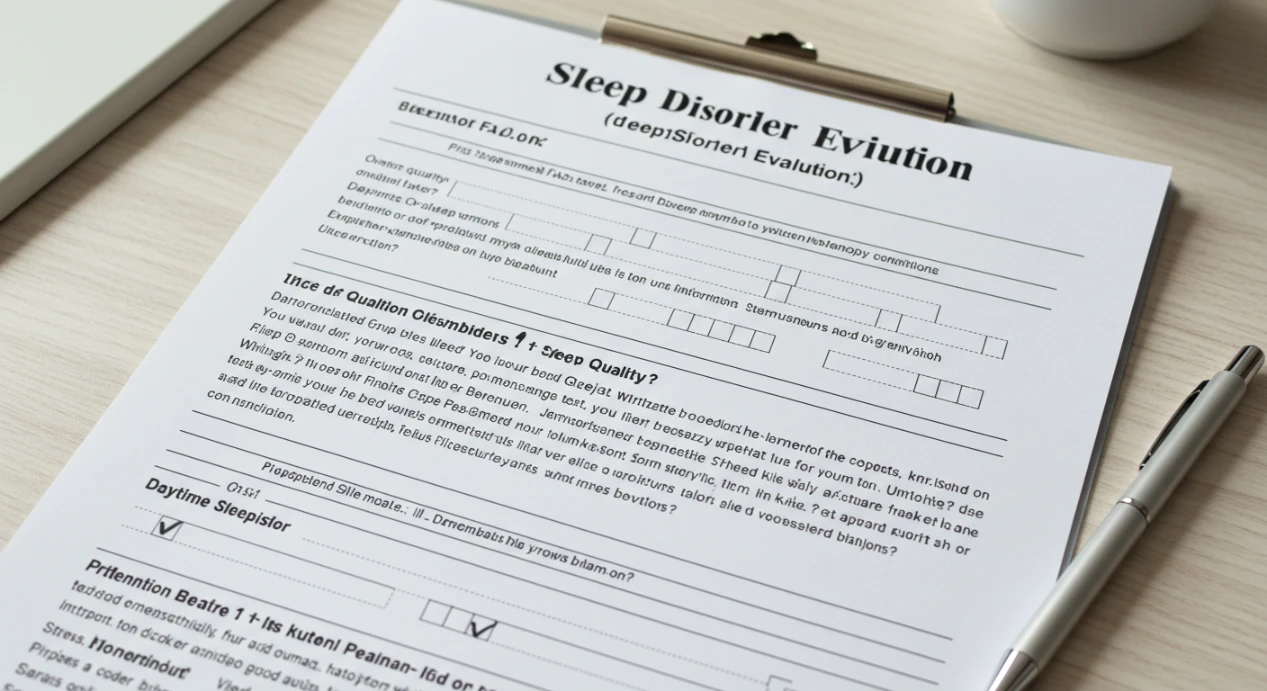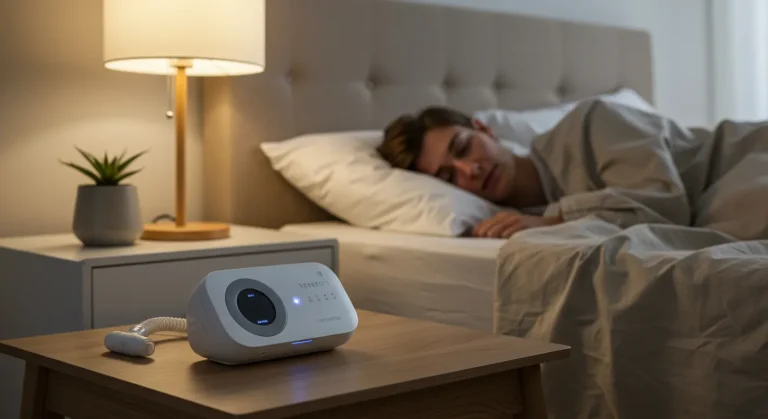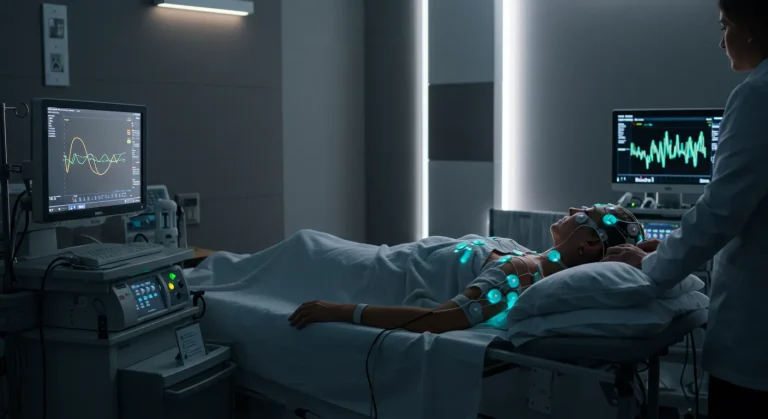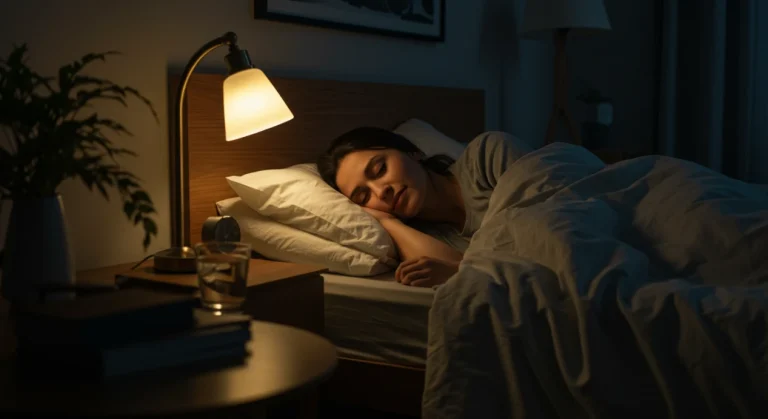Why You Shouldn’t Ignore Snoring: The Role of Sleep Diagnostics

Snoring is often dismissed as a minor nuisance, but it can be a symptom of more serious health conditions. While occasional snoring is normal, chronic or loud snoring may indicate an underlying sleep disorder such as obstructive sleep apnea (OSA). Left untreated, these conditions can lead to severe health risks, including cardiovascular diseases, daytime fatigue, and cognitive impairments.
Recognizing the importance of sleep diagnostics services is crucial in identifying and managing sleep disorders. By undergoing a professional sleep disorder evaluation, individuals can detect potential issues early and take steps to improve their overall health and quality of life.
The Science Behind Snoring
What Causes Snoring?
Snoring occurs when the airflow through the nose and throat is partially obstructed during sleep. This obstruction causes vibrations in the soft tissues of the throat, producing the characteristic snoring sound. Several factors contribute to snoring, including:
- Obstructed nasal airways: Allergies, sinus infections, or nasal polyps can limit airflow.
- Weak throat muscles: Aging and alcohol consumption can cause muscles to relax excessively.
- Obesity and excess weight: Extra tissue in the throat can narrow the airway.
- Sleep position: Sleeping on the back increases the likelihood of airway obstruction.
When Snoring Becomes a Health Concern
Snoring may indicate a more serious condition, such as sleep apnea, which is characterized by repeated interruptions in breathing during sleep. Symptoms associated with sleep apnea include:
- Loud, chronic snoring
- Gasping or choking during sleep
- Excessive daytime drowsiness
- Morning headaches
- Difficulty concentrating
If left untreated, sleep apnea can lead to high blood pressure, heart disease, stroke, and diabetes.
The Role of Sleep Diagnostics in Identifying Sleep Disorders
What Are Sleep Diagnostics Services?
Sleep diagnostics services involve a comprehensive evaluation of sleep patterns and potential disturbances. These services are designed to:
- Detect sleep disorders early
- Identify the severity of the condition
- Recommend personalized treatment plans
A thorough sleep disorder evaluation can provide insight into whether snoring is a benign issue or a sign of a more serious condition requiring medical attention.
Types of Sleep Testing Services
Various sleep testing services are available to diagnose sleep-related issues effectively. Some of the most common include:
1. Polysomnography (PSG)
A comprehensive overnight sleep study conducted in a controlled sleep lab, PSG monitors:
- Brain activity
- Eye movement
- Heart rate
- Breathing patterns
- Blood oxygen levels
- Limb movements
2. Home Sleep Apnea Testing (HSAT)
For patients with suspected sleep apnea, home sleep tests provide a convenient alternative to in-lab studies. This test measures:
- Breathing patterns
- Oxygen levels
- Respiratory effort
3. Multiple Sleep Latency Test (MSLT)
This test evaluates daytime sleepiness and is often used to diagnose narcolepsy.
4. Actigraphy
A wearable device that monitors sleep-wake cycles over several days, often used to assess insomnia or circadian rhythm disorders.
How Sleep Testing Services Can Help
With the insights gained from these tests, sleep specialists can determine the most appropriate treatment plan, whether it be lifestyle changes, CPAP therapy, oral appliances, or surgical interventions. Seeking professional sleep testing services can significantly improve overall well-being and reduce the risks associated with untreated sleep disorders.
The Connection Between Snoring and Other Health Risks
Cardiovascular Health and Snoring
Studies have shown a strong correlation between chronic snoring and cardiovascular issues, including:
- High blood pressure: Oxygen deprivation caused by sleep apnea can increase blood pressure.
- Heart disease: Poor sleep quality contributes to heart conditions and arrhythmias.
- Stroke risk: Individuals with sleep apnea are at higher risk of strokes due to increased plaque buildup in arteries.
Cognitive and Mental Health Effects
Sleep disorders caused by snoring can also impact mental health and cognitive function. Prolonged sleep deprivation can lead to:
- Memory impairment
- Increased stress and anxiety
- Depression and mood swings
Impact on Daily Life
Beyond health complications, snoring can also affect social interactions and relationships. Sleep disruptions caused by snoring can lead to:
- Partner sleep disturbances
- Reduced work productivity
- Decreased overall quality of life
Seeking Professional Help for Snoring and Sleep Disorders
Ignoring persistent snoring can have long-term consequences. If you or a loved one experience chronic snoring accompanied by fatigue or breathing difficulties, consider consulting a sleep specialist.
Vector Sleep Clinic offers expert sleep diagnostics services to help diagnose and manage sleep disorders effectively. Located at 26, 62-60 99th St, Rego Park, NY 11374, our clinic provides advanced sleep testing services to improve your health and quality of sleep. To schedule an evaluation, call us at +1 718-830-2800 or email vectorsleep@gmail.com.
Frequently Asked Questions (FAQs)
1. How do I know if my snoring is a serious problem?
If your snoring is loud, frequent, and accompanied by choking, gasping, or daytime fatigue, you should seek a sleep disorder evaluation.
2. What should I expect during a sleep study?
During a sleep study, sensors monitor your breathing, oxygen levels, and other sleep metrics to identify potential sleep disorders.
3. Can snoring be treated without surgery?
Yes. Treatments like CPAP therapy, oral appliances, and lifestyle changes can help manage snoring and sleep apnea without surgery.
4. Is home sleep testing as effective as an in-lab study?
Home sleep testing is effective for diagnosing moderate to severe sleep apnea but may not detect other sleep disorders as accurately as an in-lab study.
5. Does insurance cover sleep testing services?
Many insurance plans cover sleep diagnostics services, but coverage may vary. Contact your provider or our clinic for details.
6. Can children experience sleep apnea?
Yes. Children can suffer from sleep apnea, often due to enlarged tonsils or adenoids. Pediatric sleep studies can help diagnose and treat the condition.
7. How can I prevent snoring naturally?
Maintaining a healthy weight, sleeping on your side, avoiding alcohol before bed, and using a humidifier can help reduce snoring.
8. How long does a sleep study take?
A standard sleep study typically lasts one night, with follow-up consultations to discuss results and treatment options.
9. What happens if sleep apnea is left untreated?
Untreated sleep apnea can lead to serious health complications, including heart disease, diabetes, and increased risk of stroke.
10. When should I see a doctor about my snoring?
If snoring affects your sleep quality, causes excessive daytime fatigue, or is accompanied by breathing difficulties, schedule a sleep evaluation immediately. By recognizing the importance of sleep diagnostics, individuals can take proactive steps toward improving their health and quality of life. If you or a loved one are struggling with chronic snoring, contact Vector Sleep Clinic today for expert sleep disorder evaluation and testing services.






